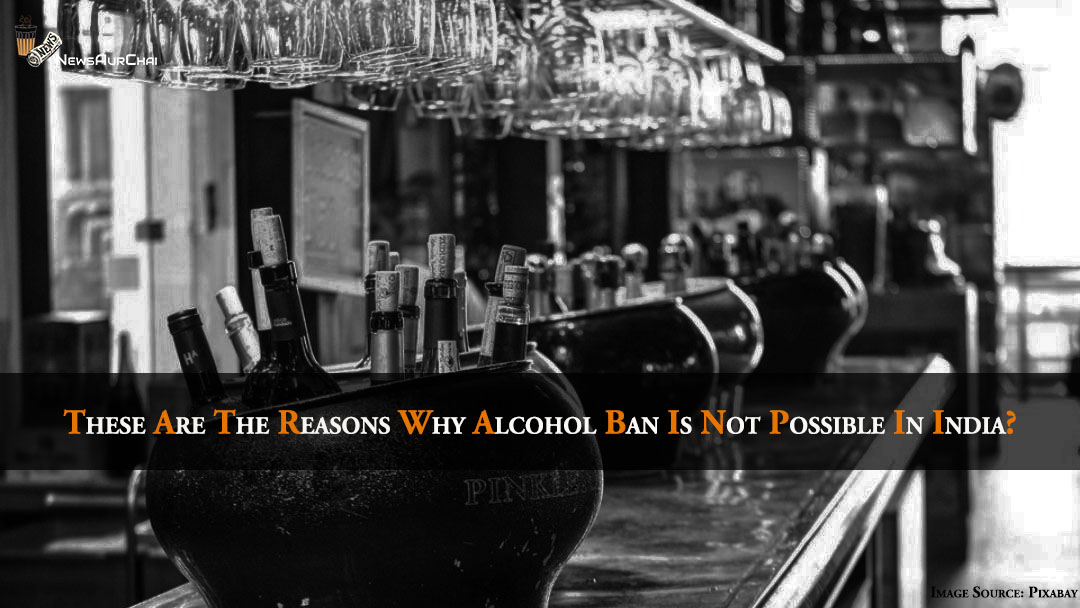
Ban of Alcohol— easily said than to be brought into practice, as there is no real ban which is happening. What is a ban? An official/legal prohibition of something. However, do you think this ban can stop people from consuming liquor? People will find ways to get alcohol; black markets will flourish. So is there actually a prohibition happening?
In India, consumption of alcohol is prohibited in the states of Gujarat, Bihar, Nagaland and the union territory of Lakshadweep. There is a partial ban on alcohol in a few districts of Manipur. Nonetheless, the alcohol consumption of India has not come down but increased to 72.5% over the past 20 years.
States like Kerala, Mizoram, Andhra Pradesh, Haryana and Tamil Nadu have previously enforced a ban on alcohol. However, later, the government of the concerned state withdrew or relaxed the ban. The reason stated was that this prohibition doesn’t work and second because of finances. Tax from alcohol sales roughly forms a generous amount of states revenue. If this stream suddenly stops, states have to cut some critical spending compulsorily. Investors shy away, so do tourists which eventually leads the states to give up, and liquor flows freely again.
The reason why alcohol ban doesn’t work?
#Affects Government’s earning
Every year the government ears crores of rupees through the liquor business. These alcohol are imposed with various sales taxes and excise duty, which helps the government in running their affairs of the state and meet the expenses of running a bureaucracy. So there is always a reluctance from the side of the government regarding the ban.
#Political parties and liquor lobby
Liquor manufacturers/lobby fill the pockets of political parties and politicians. In the name of donation, this political part accepts the money provided to them, which helps in running their party. Under Section 80GGB & Section 80GGC of the Income Tax Act, 1961 any sum contributed by an eligible tax-payer to any political party which is registered under Section 29A of Representation of People Act, 1951 can seek deductions while filing IT-returns. So why would they even try to uproot their source of income?
#Political Game
Despite knowing the side effects of alcohol, people consume it. Thus, if the government attempts to ban alcohol, it will eventually upset the public, and this will be seen in the next election. So, why would any party want to lose power? Even if the central government proposes to ban the same, the opposition will bring this up in their next election and promises regarding the scrapping of prohibition will help in earning vote banks. Does it make sense now?
#Emergence of Illegal Sales
Even if such prohibition happens–do you think people would stop drinking? Obviously NO, even government fear this. As prohibition will only help the illegal or black market sales of liquor. For the underworld gangs as well as crime syndicates, this will be the best opportunity to thrive. History has provided us with enough and more evidence regarding the same. In the United States, during the Prohibition Era (1920-1933), the rum-running emerged in response to prohibition. Mafia groups mushroomed, and there seemed to have no stoppage to criminal activities.
When prohibition was repealed in 1933, many bootleggers and suppliers with wet sympathies shifted to the legitimate liquor business. Other crime syndicates turned their efforts into expanding their security rackets to cover legal liquor sales and other business areas.
#Emergence of other issues
In the case of India, though there are laws and regulation how far it is being implemented? Even if it is implemented the law-enforcement officers and other public servants are bribed to twist the law and find loopholes. Ultimately, the whole purpose of prohibition will end up not working, and the emergence of more corruption will be the result.
All the above points prove that a ban is not the right choice; it will only lead to other issues. It depends on the mentality of the people, whether to drink or not. So, let me ask the readers, have we to wait until the citizens themselves realise?





